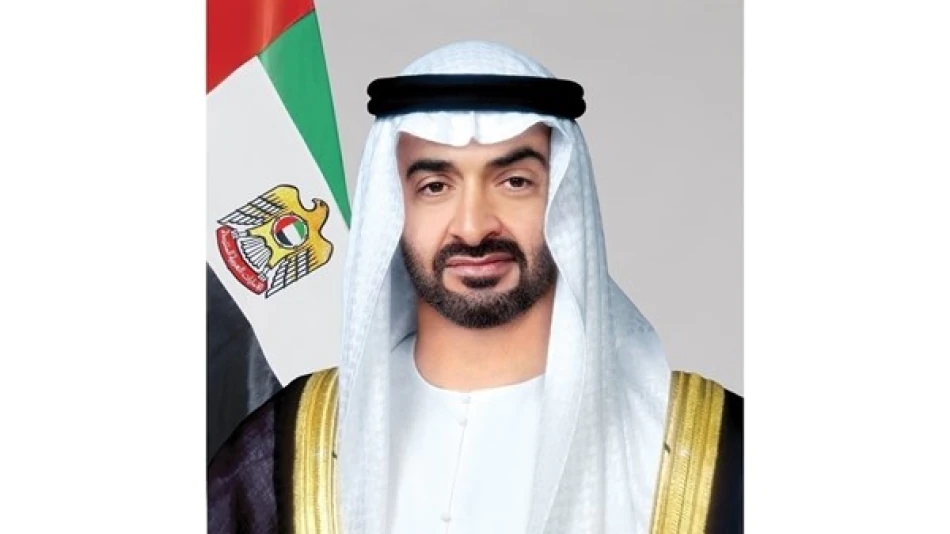
UAE Leader Celebrates Emirati Youth's Achievements, Ambitions, and Pivotal National Contributions
UAE Doubles Down on Youth Leadership Strategy as Regional Competition for Talent Intensifies
UAE President Sheikh Mohammed bin Zayed Al Nahyan has reaffirmed the nation's commitment to empowering young leaders to drive economic development and future growth, signaling continued investment in human capital as Gulf states compete for regional dominance in emerging industries and innovation.
Presidential Vision Aligns with Economic Diversification Goals
Speaking on International Youth Day via his official X platform account, Sheikh Mohammed bin Zayed emphasized the "pivotal role of youth in the renaissance and prosperity of societies." His statement reinforced the UAE's ongoing strategy to position young Emiratis at the forefront of national development initiatives, from technology and finance to renewable energy and space exploration.
The President specifically highlighted young Emiratis' "effective presence in all fields of national work," acknowledging their contributions while pledging continued support for their "ambitions" and leadership development.
Strategic Context: Youth as Economic Assets
Regional Competition for Human Capital
This renewed focus on youth empowerment comes as Gulf nations intensify competition for skilled talent and innovation leadership. Saudi Arabia's Vision 2030 has allocated billions toward youth programs and entrepreneurship, while Qatar continues leveraging its World Cup infrastructure investments to attract young professionals. The UAE's emphasis on youth development represents a direct response to these regional dynamics.
Demographic Advantages and Challenges
The UAE's strategy capitalizes on favorable demographics, with approximately 15% of Emirati nationals under age 25. However, the nation faces the ongoing challenge of reducing dependence on expatriate expertise while building indigenous capabilities across critical sectors including artificial intelligence, fintech, and sustainable energy.
Economic Implications and Market Impact
For investors and businesses operating in the UAE, this youth-focused approach signals several key trends. Government contracts and partnerships will likely prioritize companies demonstrating commitment to Emirati talent development. The emphasis on youth leadership also suggests continued public and private investment in education technology, vocational training, and startup ecosystems.
International corporations should expect increased pressure to localize talent pipelines and create meaningful career advancement opportunities for young Emiratis, particularly in high-value sectors like financial services, technology, and renewable energy.
Comparing Global Youth Strategies
The UAE's approach mirrors successful models from Singapore and South Korea, where government-led youth development programs created competitive advantages in technology and innovation. Unlike purely market-driven systems, the UAE's state-guided approach allows for rapid scaling of initiatives and alignment with national economic priorities.
This contrasts with the United States' more decentralized approach to youth development, where private sector and university partnerships drive innovation, often without coordinated national strategy.
Most Viewed News

 Layla Al Mansoori
Layla Al Mansoori






